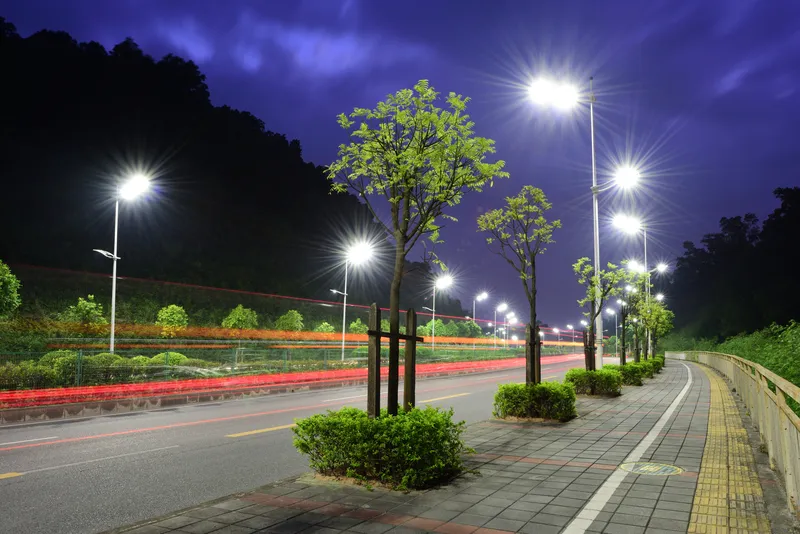
Peachtree Corners, one of the US’s first smart cities using connected infrastructure and 5G, has announced a collaboration with lighting provider Juganu.
Juganu’s smart city lighting solutions will be deployed within the Curiosity Lab area of City of Peachtree Corners as well as in the city’s centre. This marks Juganu’s first full smart city lighting deployment in the US.
The solution eliminates the need for multiple devices on one light pole, with multiple systems unified in a single fixture. The company’s smart city fixture includes energy-efficient LED lighting, environmental sensors to monitor air quality, IoT framework for additional smart city applications and leverages a security camera that features artificial intelligence and edge computing for enhanced capabilities. In addition, each light fixture includes a wireless access point to provide free public WiFi.
There are currently 16 of Juganu’s lighting units deployed across the Tot Lot Playground in the town centre, four units deployed across the Dog Park and six units deployed at the Curiosity Lab Innovation Center. As the project expands, Juganu’s lighting solutions will be deployed across the town centre parking lots, storefronts, parking deck and the parking lot at Curiosity Lab’s Innovation Center. The full deployment will include a total of 80 units deployed across the city.
“Peachtree Corners and Curiosity Lab was the perfect choice for Juganu to have our first full-scale deployment,” said Shayne Rose, Juganu’s vice president for North American Smart Cities.
“Between their bustling town centre and their real-world smart city testing environment at Curiosity Lab, these are two unique locations that allow us to showcase and demonstrate how our smart city lighting solution brings additional elements of connectivity, safety, environmental monitoring and more to our customers. Curiosity Lab has been extremely supportive throughout the process, including leading the efforts with Georgia Power, to ensure all communities across Georgia have access to our systems, even if they lease their lighting infrastructure.”
“Juganu’s smart lighting solution continues to add to our city’s goals of improving safety and quality of life for our residents while providing the efficiency of multiple smart city solutions in one sleek unit,” said Brian Johnson, city manager for Peachtree Corners. “This adds another element of security and safety to our town centre with bright lighting and security cameras that can be accessed if an incident occurs.”
Juganu delivers 5G coverage, public WiFi connectivity, an IoT framework, and AI-based applications, all integrated within a single lighting fixture. The company says that the concept leads to significant cost savings in terms of capex, opex, time and resources by eliminating the need for additional infrastructure.
Peachtree Corners, with a population of around 45,000, is near Atlanta in the US state of Georgia. Its has focused on becoming of the premier smart cities in the country and was one of the first urban area to adopt multi-modal transportation. This include teleoperated e-scooters, fully autonomous shuttles used by residents, development of a solar roadway and creation of what it claims to be the largest electric vehicle fast-charging hub in the region.
The city’s Curiosity Lab is a 5G-enabled intelligent mobility and smart city living laboratory that was designed as a proving ground for IoT, mobility and smart city emerging technologies. The centerpiece of the lab is a 5km-long autonomous vehicle lane using cellular Vehicle to Everything (C-V2X) technologies.
Additional infrastructure includes intelligent traffic cameras and traffic signals, smart streetlights, the country’s first “IoT Central Control Room” implemented in a city and a 2,320m² technology incubator. Owned and operated by the City of Peachtree Corners, Curiosity Lab is one of North America’s only real-world testing environments and is available for use free of charge.









